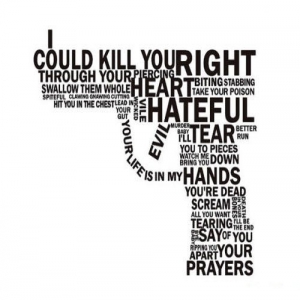
.jpg) Dr P. Raja
Dr P. Raja
"A word to kill...A Word to win," so goes a Tamil proverb. It simply means every word is a weapon. It all depends on who uses it and how it is employed.
Once, a king caught his enemy and brought him to his court. The king told his enemy to choose the way he would like to die. The enemy, who was relatively young, bold, and clever, said thus to the king: "I will choose, but please promise me that you will not go back on your words." The king promised, and the whole court was witness to it. Then, the enemy told the king, "I choose to die of old age." The king's words were meant to kill. The enemy's words were meant to win.
That is why we should know the meaning of each word before we articulate it. When we express words, our facial ex
Norman Vincent Peele, the author of 'How to Make Friends and Influence People,' was once asked to address the employees of a company that manufactured feed concentrate for livestock. The meeting was held in a tent with animal foods layered along the sides. A couple of cages containing chickens were also part of the exhibits.
Peele, as we know, was not only a famous writer but also a very well-known public speaker. He always kept his audience spellbound. During a pause in Peele's speech, a jubilant cackling came through the loudspeaker. The speaker was mystified. The audience laughed heartily when someone opened the cage and held up a newly laid egg.
It was time for Peele to chuckle. He told the big crowd that he had never been interrupted by a chicken before. He brought the tent down with the remark, "Anyway, the hen laid the egg. I didn't."
Words are, after all, meant to communicate. While doing so, words can hurt, make others jealous, make others smile or burst into laughter, or make others gnash their teeth and punch in the air. Indeed, we govern men with words.
It must be borne in mind that words are not nearly vehicles in which thought is delivered. Words are part of thinking. One should be cautious of the words one plans to utter. Every word is a bullet. Once we let it go, it never returns.
Wise men know when to eat words and know pretty well that eating words will never give them indigestion. What we keep with us, we may change or mend. But words, once spoken, can never be recalled.
It was the Norwegian playwright Henrik Ibsen who said, "A thousand words will not leave so deep an impression as one deed. This is true in the case of a reluctant schoolboy who was asked to write a thumbnail biography of Benjamin Franklin. According to the story, the young scholar wrote thus: "Benjamin Franklin was born in Boston, moved to Philadelphia, and met a beauty who gave a coquettish smile. He married her and discovered electricity." One can read the meaning in the above thumbnail biography. That is the power of words.
There are direct words and indirect words. There are occasions when direct words fail to win hearts, and at such a time, indirect words help. This idea can be explained with an anecdote connected with King Bhoja of the Malwa country.
Once, King Bhoja entered a Siva temple with his paraphernalia. Before he could make a couple of steps forward, he heard someone cry: "What is the use of entering the temple? Lord Siva is not there."
King Bhoja was taken aback. He made a swift about turn and wanted to know who uttered those words and for what purpose. A puny and haggard-looking beggar raised his right arm above his shaggy head to denote that he was the sole proprietor of the words of recantation. When the king asked him why he said so, the poor man replied, "How can he be inside the temple?"
The beggar had his own reason. And what he said was beautifully recorded in an immortal Tamil classic called 'Viveka Chintamani', a gem of discrimination. The work comprises 135 poems of historical and social value. The poem that speaks of the beggar and King Bhoja is no. 131. I have translated here for you:
Half of Him was Vishnu.
The other half Parvathi occupied.
Shiva died helpless
Without a body to call his own.
His two necklaces --
One made of Serpents,
And the other made of human skulls --
Disappeared into the ocean.
The half-moon that studded his head
went back to the sky.
And the snake that adored his neck
Went underground.
O, king Bhoja! You are very much like
The karpagam tree that gives
Just for the asking.
While Shiva blessed you with wealth
To remain generous for life
He offered me his begging bowl.
King Bhoja understood the meaning of the beggar's indirect words. He smiled and gave away one of his Golden chains to the beggar. Those significant words won food for him to last a few months.